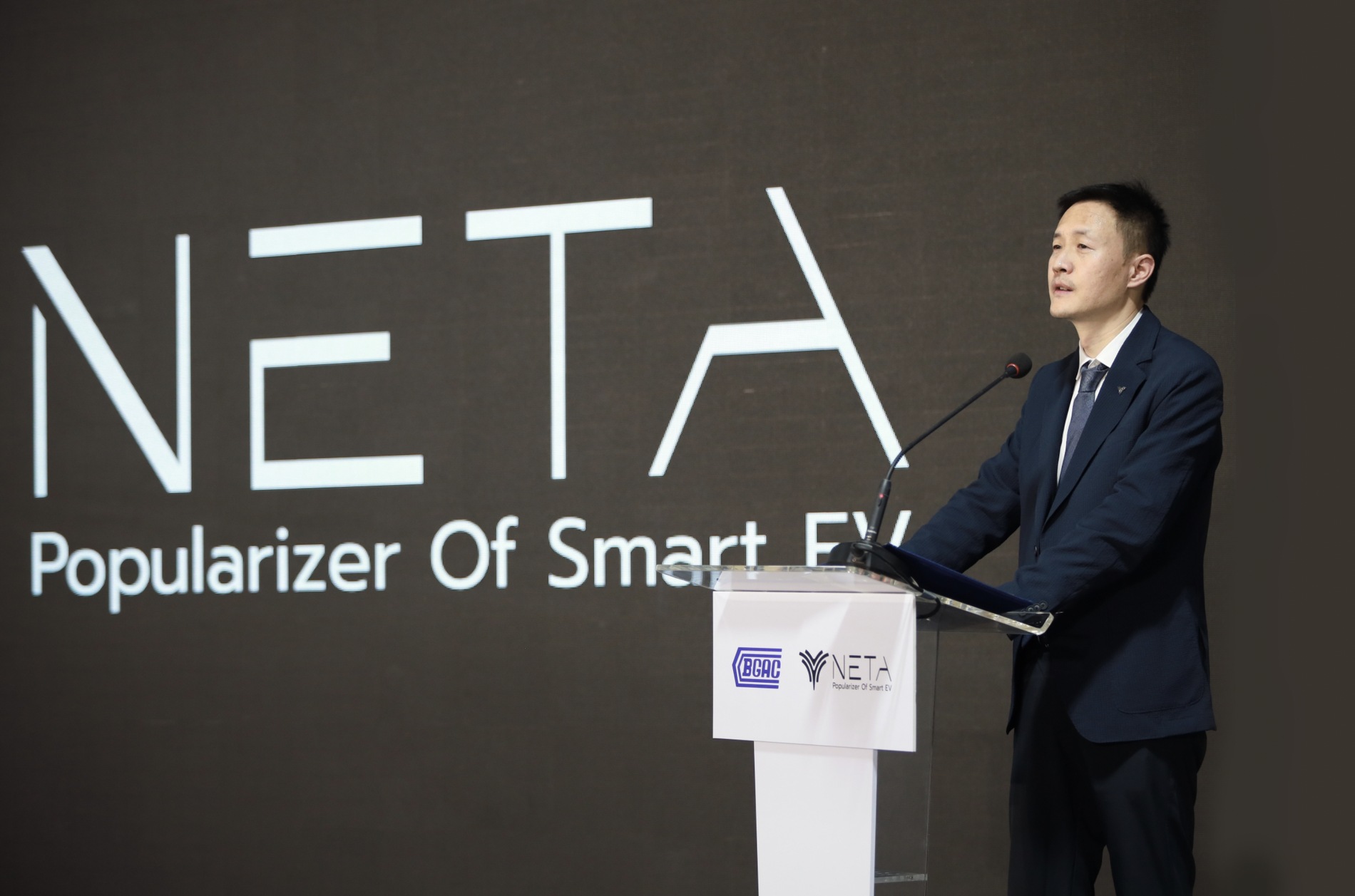Hozon, a Chinese electric vehicle maker backed by CATL, broke ground at its first overseas car plant in Thailand on Friday, as the company eyes growing demand for green vehicles in Southeast Asia.
Why it matters: The move is the latest example of Chinese automakers looking to crack global markets and find new revenue sources while dealing with increased competition and weakening demand at home.
Details: Hozon announced on Friday that construction of the company’s first overseas factory, located on the northeast side of Bangkok and due to have an annual capacity of 20,000 vehicles, has started, with mass production set to begin in January 2024.
- The Thailand plant will be built with local partner Bangchan General Assembly Co., Ltd. and become a major base to produce and export right-hand-drive EVs to ASEAN countries, according to chief executive Zhang Yong.
- Also known as Neta Auto in China, Hozon aims to sell 10,000 vehicles in Thailand as part of its goal of selling 300,000 vehicles this year. The company also has plans to enter the Middle East and Europe, though it has not revealed further details.
Context: Hozon began selling its third production model, the Neta V, in Thailand last August, marking its entry into the country’s growing EV market.
- Sales of the entry-level crossover reached 1,809 units in Thailand in the first two months of this year, making it the second best-selling EV model in the country following BYD’s Atto 3, according to figures compiled by Autolifethailand.
- Thailand reported total sales of 8,515 EVs over the same period, of which 3,108 were BYD compact sports utility vehicles. Fitch said it expected EVs to account for 4% of the country’s total car sales in 2023, and in the medium term, the Thai government is aiming for 30% of all new cars made in the country to be EVs by 2030.
- Multiple Chinese carmakers have been piling into the regional Southeast Asian market. BYD began establishing a $491-million Thai car plant, with a proposed maximum output of 150,000 vehicles, last year. The plant is scheduled to start operating in 2024.
- Great Wall Motor opened a factory in the country in mid-2021, which it acquired from General Motors a year earlier, and can churn out up to 80,000 hybrid and electric cars annually. SAIC has been manufacturing MG-branded cars with local conglomerate CP Groups since 2014.
READ MORE: Meet the Chinese carmakers racing to get a larger share of the global market

